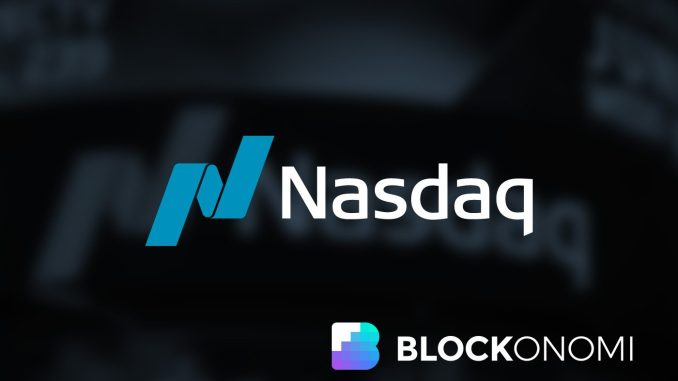
According to separate notices, the Nasdaq and NYSE, the leading American stock exchanges, have quit their bid to list and trade options on spot Bitcoin and Ethereum exchange-traded funds (ETFs).
The NYSE pulled back its proposal to list and trade options on two Bitcoin funds, including the Grayscale Bitcoin ETF and the Bitwise Bitcoin ETF. These ETFs launched on January 10, alongside other funds issued by BlackRock, Fidelity, and VanEck, among others.
No ETF Options Coming Yet
Following the NYSE, Nasdaq withdrew their proposals for options on BlackRock’s iShares Bitcoin Trust (IBIT) and iShares Ethereum Trust (ETHA). Last week, BlackRock and Nasdaq submitted an application with the Securities and Exchange Commission (SEC) to list and trade the Ethereum ETF.
The NYSE also applied to list and trade options on three Ethereum funds, including the Grayscale Ethereum Trust (ETHE), the Grayscale Ethereum Mini (ETH), and the Bitwise Ethereum ETF (ETHW). These applications are still active at press time.
Recently, a number of exchanges, such as MIAX, MIAX Pearl, BOX Exchange, and Cboe, also withdrew similar proposals.
However, Cboe already re-filed its application shortly after its cancellation. While no official reason is given, the move has led to speculations that these withdrawals might be a strategy in anticipation of potential engagement with the SEC.
Bloomberg Intelligence analyst James Seyffart predicts that Nasdaq and NYSE will likely refile their proposals for spot Bitcoin ETF options soon, similar to Cboe’s actions. “I’m expecting them to re-file over the coming days or weeks like we saw from CBOE,” Seyffart said.
Growing Demand
The SEC has not yet approved any options on spot Bitcoin or Ethereum ETFs despite allowing the trading of these products themselves. However, the SEC published the proposal in the Federal Register for public comment as part of its reviewing process, which means the approval odds remain.
Whatever the reasons for the delayed decision, these proposals likely show a growing demand for crypto investment products. Fund managers want to capitalize on this trend by offering trading options.
The Nasdaq and NYSE believe that allowing options on Ether ETPs will enhance market transparency and price discovery. This is expected to attract more liquidity and provide investors with a cost-efficient risk management tool.
On Thursday, the SEC approved the first leveraged MicroStrategy ETF. The fund, trading under the MSTX ticker, aims to deliver 175% long daily targeted exposure to MicroStrategy’s stock (MSTR).
MicroStrategy has been a prominent player in the cryptocurrency space. The firm, under Bitcoin maxis Michael Saylor, has constantly added more Bitcoin to its holdings. As of August, MicroStrategy owns approximately 214,400 Bitcoin, valued at around $15.22 billion.
The company’s stock has seen a remarkable rise, with shares increasing over 70% in the last six months, while Bitcoin’s price has risen by about 13% during the same period. Given MicroStrategy’s strategy of holding Bitcoin as a primary treasury reserve asset, the product likely allows investors to gain amplified exposure to Bitcoin indirectly.
Sylvia Jablonski, CEO of Defiance ETFs, the issuer of MSTX, said:
“Given MicroStrategy’s inherent higher beta compared to bitcoin, MSTX offers a unique opportunity for investors to maximize their leverage exposure to the Bitcoin market within an ETF wrapper.”
The launch of MSTX comes at a time of increasing interest in cryptocurrency-related investment products. MicroStrategy’s stock has significantly outperformed most of its peers in the S&P 500 due to its aggressive Bitcoin acquisition strategy, making this ETF an attractive option for those looking to capitalize on the cryptocurrency market’s volatility.
The inflows into the ETF can substantially contribute to the price appreciation of Bitcoin. Historically, Bitcoin ETFs have accounted for a major portion of new investments in Bitcoin.
However, the ETF is designed for sophisticated investors who are comfortable with high-risk, high-reward investment strategies due to the extremely volatile nature of leveraged ETFs.





Be the first to comment